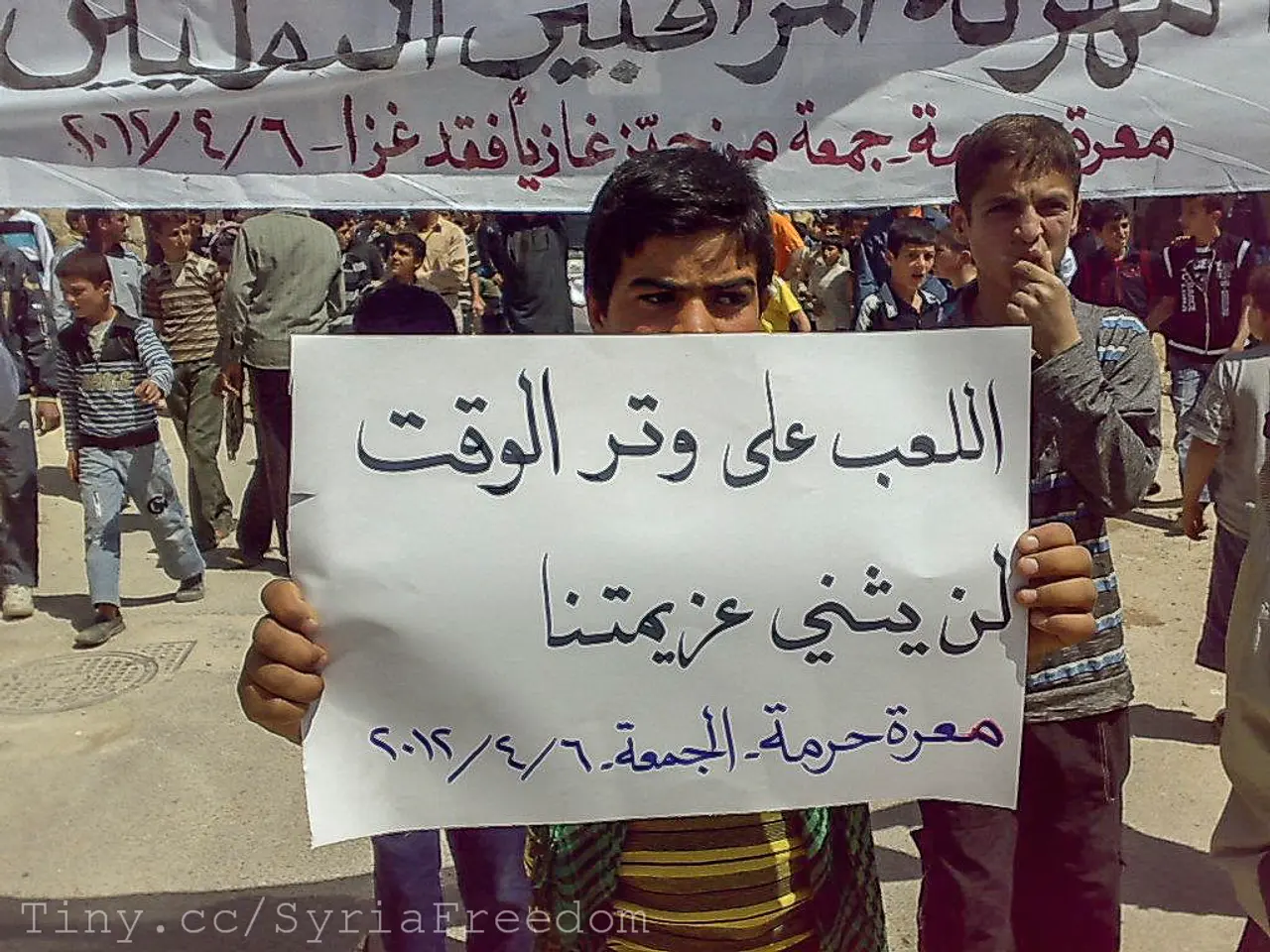Demonstrations intensify in opposition to the conflict in Gaza
In a significant development, a comprehensive agreement to end the ongoing Gaza-Israel conflict has been reached following months of mediation by Qatar, Egypt, and the United States. The agreement, which closely follows a three-phase proposal first outlined by U.S. President Joe Biden in May 2024, is set to bring an end to the long-standing conflict.
The plan, expected to be presented to the warring parties within the next two weeks, includes an immediate six-week ceasefire starting January 19, 2025. This ceasefire will be followed by a series of phased hostage releases involving Israel and Hamas, Israeli withdrawal from heavily populated areas in Gaza, and the flow of humanitarian aid to Gaza.
Following the ceasefire, negotiations will commence for a permanent end to the war, full Israeli withdrawal from Gaza, and the release of all hostages. The final phase envisions a multiyear reconstruction of Gaza and the establishment of a Palestinian government without Hamas rule, under the administration of the Palestinian Authority (PA).
The timeline and key details of the agreement are as follows:
- May 2024: The Biden administration presented a three-phase ceasefire and peace proposal.
- January 15, 2025: Israel and Hamas agreed on the ceasefire framework, confirmed by Israeli leadership.
- January 19, 2025: The ceasefire comes into effect with a hostages-and-prisoners exchange starting, expected to last six weeks.
- Post ceasefire phase: Negotiations begin for a permanent end to combat actions and Israeli withdrawal from Gaza.
- Subsequent multiyear period: Reconstruction of Gaza and political reorganization under the PA with no Hamas control.
While the agreement presents a glimmer of hope, challenges remain. These include the governance of Gaza post-conflict, the relationship between the Temporary Government Authority (TGA) and the PA, Hamas’s acceptance, Israeli security concerns, and coordinating international stakeholders, including Arab states and the UN.
France and the UN advocate for opening all Gaza access points immediately, facilitating humanitarian aid, and using the ceasefire momentum to pursue the two-state solution, aiming for peace and security guarantees for both peoples and a future framework based on pre-1967 borders.
The international community has shown its support for the agreement, with Germany, Britain, Italy, New Zealand, and Australia among those criticizing Israel's planned takeover of Gaza. The UN Security Council is also convening an emergency meeting today to discuss Israel's war plans.
The Gaza war was triggered by the attack of Hamas and other Palestinian terrorist organizations on Israel on October 7, 2023, resulting in over 1,200 deaths and more than 250 hostages taken to Gaza. Israel hopes that increased military pressure will bring Hamas back to the negotiating table on its own terms, but there are doubts whether the threat of occupation alone will lead to a breakthrough in indirect negotiations.
As the ceasefire begins, the relatives of the hostages fear that the capture of Gaza would mean a death sentence for their loved ones, as Israeli estimates suggest there are still 20 living hostages in the hands of Hamas. Mass protests are taking place in Israel against the escalation of the war, with speakers calling on soldiers not to participate and urging opposition, business, unions, and academia to paralyse the country.
In the midst of these challenges, international efforts remain focused on advancing a two-state solution as a long-term peace framework. The agreement is a phased ceasefire and peace process, emphasizing hostage release, Israeli withdrawal, Gaza reconstruction, and a restructured Palestinian governance.
The agreement, resulting from months of mediation, is a phased ceasefire and peace process focused on ending the Gaza-Israel conflict, which includes political negotiations and general news related to war-and-conflicts. Following the ceasefire, negotiations will commence for a permanent end to the war, full Israeli withdrawal from Gaza, and the release of all hostages, while France and the UN advocate for opening access points, facilitating humanitarian aid, and pursuing a two-state solution based on pre-1967 borders.








